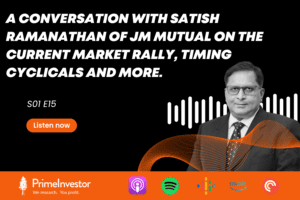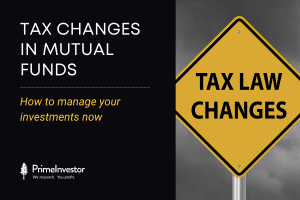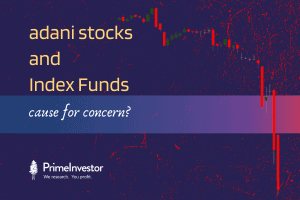
A short note about our recent call
Our recent call has been in the limelight. Here is a short note about such calls.

Our recent call has been in the limelight. Here is a short note about such calls.

Episode 15 of the Prime Podcast

Taking a loan against mutual fund investments without breaking them can seem like an attractive option to tide over a temporary cash crunch. Aarati Krishnan evaluates the merits of this financing arrangement.

MF platforms do a poor job of telling customers how to make the best investing decisions. Read this article to understand how you can overcome this.

Special bonus episode of the PrimeInvestor podcast hosted by Srikanth Meenakshi.

Prime Podcast S01 Ep03.
In this third episode of the PrimeInvestor podcast, we delve into sector funds and the latest news events that have a significant impact on the markets and your investments.

Last week, we made a quiet note about SEBI’s consultation paper on mutual funds in the PrimeInvestor Community. A consultation paper solicits opinion from the public on proposals mooted by the regulator, along with rationale for such proposals. Do note that these are proposals and have not been implemented.

SEBI (Securities Exchange Board of India) has levelled charges of front-running against two big institutions that may Indians are invested with – LIC and Axis Mutual Fund. Front running and its close cousin – insider trading – were quite widely prevalent in the days of yore, before SEBI drafted elaborate regulations to keep such practices at bay. But what do today’s investors need to know about these malpractices? Here’s an explainer.

Changes in tax rules at the end of a financial year is not something that you routinely expect. And not when it is a sweeping change on taxation in your mutual fund! In this article, we are going to discuss the tax changes in mutual funds in 4 parts:
One, the changes effective April 1, 2023 and the categories impacted
The tax impact for you and what you can do to plan better
What should you do with your existing investments?
How should you plan your fresh investments?

After the Hindenburg bombshell tanked Adani stocks, the faith that some investors placed in index investing seems to have been shaken. With the Nifty 50 and Nifty Next 50 featuring seven Adani group stocks between them, PrimeInvestor received many queries soon after the news broke.

The list of top performing equity funds for the past year features a couple of unusual entries. With a return of 18-21 per cent, CPSE ETF (managed by Nippon India Mutual Fund for the government of India) and the Bharat 22 ETF (managed by ICICI Prudential Mutual Fund) are top rankers among equity funds.
This has many investors asking if they should add these passive funds to their portfolio. The portfolios of CPSE and Bharat 22 ETFs are made up of the PSU oil, energy and financial giants which are the flavour of the season. These ETFs’ costs are ultra-low because they are used as divestment vehicles. Both ETFs would also seem to be ‘value buys’ if you go by their ultra-cheap valuations. The CPSE ETF trades at a portfolio PE of 7 times and Bharat 22 ETF at about 11 times. This is a fraction of the current Nifty50 PE at over 21 times.
But does this make them worth betting on? There are five good reasons for long-term stock investors to steer clear of these ETFs.
Hold On
You are being redirected to another page,